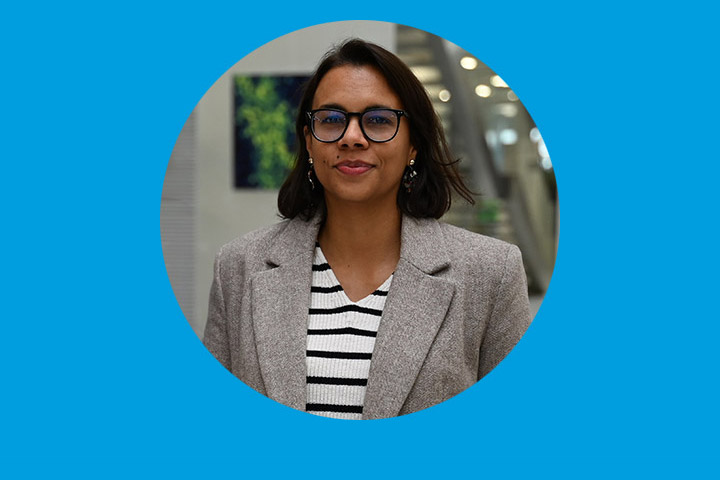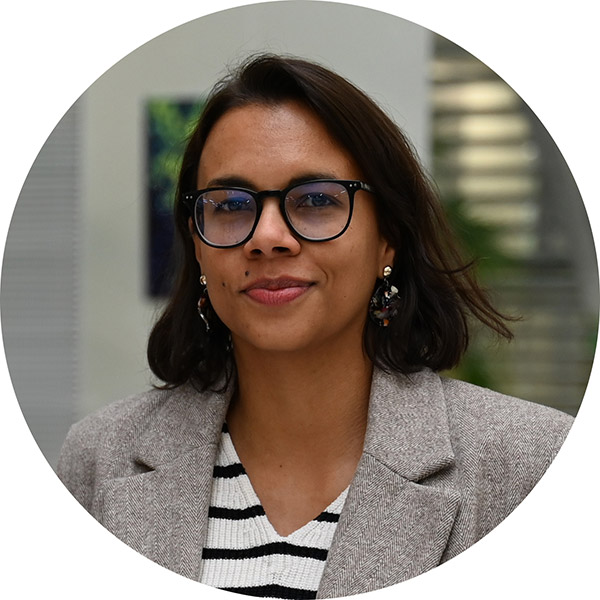
Women’s voices: Christelle Glangetas

This month in Women’s Voices, we interviewed Christelle Glangetas, a senior postdoctoral scientist at the Institute of Neurodegenerative Diseases (IMN). In this interview, she shares her academic journey and reflects on the challenges of securing permanent positions in academia.
Sara Carracedo: Could you please introduce yourself and your academic path?
Christelle Glangetas: I am a senior postdoctoral scientist working at the Institute of Neurodegenerative Diseases (IMN, for Institut des maladies neurodégénératives) in Bordeaux. My primary research interest is to understand how the brain shapes emotions and, inversely, how emotions shape brain plasticity.
I obtained a PhD in Neurosciences at the University of Bordeaux in 2014, at the Interdisciplinary Institute for Neurosciences, where I investigated the role of neuronal plasticity in anxiety control.
Then, I moved to Switzerland to the team of Camilla Bellone as a postdoctoral researcher, where I worked on motor and anxiety circuits in physiopathological conditions (Huntington’s disease, Autism Spectrum Disorders).
In 2018, I joined the IMN with a postdoctoral fellowship from the Fondation de la Recherche Médicale (FRM). I work in the team led by Jérôme Baufreton and François Georges. During the last six years, I have built a research axis on the neuronal mechanisms underlying anxiety and anxiety-related disorders that I hope to pursue in this team as an assistant professor.
What is your current research focus at the IMN?
I am developing several scientific projects, and their common point is to understand how neuronal circuits control social and emotional processing. In particular, I am studying the role of different neuronal populations of the insular cortex (insula) in social and anxiety behaviors.
You received the 2025 Marian Diamond Prize from the Neurocampus Parity and Inclusion Committee (NeuroPIC). How do you think prizes like this contribute to supporting and promoting women in neuroscience?
First, I have to say that I was really happy to receive a prize from the Bordeaux Neurocampus community, which recognizes my scientific work and my contribution to scientific outreach. This prize allowed me to share my latest research on the insula and social preference as an invited speaker at the Bordeaux Neurocampus Day. It was a valuable opportunity to network with colleagues and demonstrate my expertise. Being a laureate of the Marian Diamond Prize also increases my visibility more widely, which is an essential step in supporting and promoting women in neuroscience.
As a senior postdoc, have you faced any specific challenges or structural barriers to securing a permanent research position in academia?
Yes, I faced barriers to securing a permanent research position in academia, and I am still struggling as a senior female postdoc scientist. It was a question that I asked myself: Why do I not have a permanent position given my motivation, my commitment, and my success?
We all know that neuroscience is a very competitive field, and it is even harder for female scientists. In France, only a limited number of research positions are available each year, and assistant professor positions can be even rarer. We have few positions and many candidates! Science needs more financial support from our government agency; that is obvious.
But still, why? I am an excellent researcher, and I really think that teaching is made for me. I am convinced that my fifteen years of expertise would benefit the students and the scientific community. Despite my concerns, I continue to enjoy science with my colleagues, students., Itrain myself to learn new skills and build other opportunities.
What advice would you give to women aiming for long-term academic careers in neuroscience?
Prepare for your success. It is good to plan your next scientific experiment, the one for tomorrow, the one you want to do next week, but see further, see bigger. Take advantage of this rich professional environment (Bordeaux Neurocampus and the University of Bordeaux). Think about your career plan. Create your opportunities. Finally, be yourself, do what you like and what you are good at.
About Women’s Voices
Women’s Voices is an interview created by Sara Carracedo for the Brainstorm Journal in partnership with the Neurocampus Parity and Inclusion Committee (NeuroPIC) a local group committed to promoting equality and organizing actions to close the gap between women and men in academia.
The goal of this section is to increase the visibility of early career female researchers at the Bordeaux Neurocampus of the University of Bordeaux. We interview researchers about their scientific contributions, insights and opinions about equity, diversity and gender bias in academia. Through these interviews, we aim not only to highlight their achievements but also to serve as inspiration for our scientific community and other female scientists.
Last update 07/10/25
